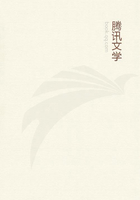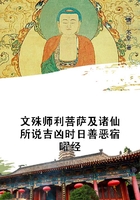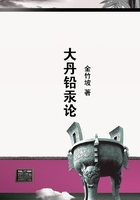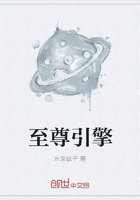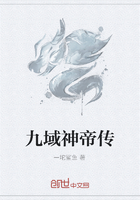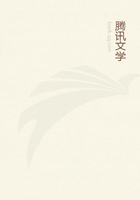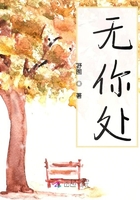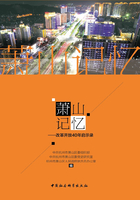The first appearance of Pierre Loti's works, twenty years ago, caused a sensation throughout those circles wherein the creations of intellect and imagination are felt, studied, and discussed. The author was one who, with a power which no one had wielded before him, carried off his readers into exotic lands, and whose art, in appearance most simple, proved a genuine enchantment for the imagination. It was the time when M. Zola and his school stood at the head of the literary movement. There breathed forth from Loti's writings an all-penetrating fragrance of poesy, which liberated French literary ideals from the heavy and oppressive yoke of the Naturalistic school. Truth now soared on unhampered pinions, and the reading world was completely won by the unsurpassed intensity and faithful accuracy with which he depicted the alluring charms of far-off scenes, and painted the naive soul of the races that seem to endure in the isles of the Pacific as surviving representatives of the world's infancy.
It was then learned that this independent writer was named in real life Louis Marie Julien Viaud, and that he was a naval officer. This very fact, that he was not a writer by profession, added indeed to his success. He actually had seen that which he was describing, he had lived that which he was relating. What in any other man would have seemed but research and oddity, remained natural in the case of a sailor who returned each year with a manuscript in his hand. Africa, Asia, the isles of the Pacific, were the usual scenes of his dramas.
Finally from France itself, and from the oldest provinces of France, he drew subject-matter for two of his novels, /An Iceland Fisherman/and /Ramuntcho/. This proved a surprise. Our Breton sailors and our Basque mountaineers were not less foreign to the Parisian drawing-room than was Aziyade or the little Rahahu. One claimed to have a knowledge of Brittany, or of the Pyrenees, because one had visited Dinard or Biarritz; while in reality neither Tahiti nor the Isle of Paques could have remained more completely unknown to us.
The developments of human industry have brought the extremities of the world nearer together; but the soul of each race continues to cloak itself in its own individuality and to remain a mystery to the rest of the world. One trait alone is common to all: the infinite sadness of human destiny. This it was that Loti impressed so vividly on the reading world.
His success was great. Though a young man as yet, Loti saw his work crowned with what in France may be considered the supreme sanction: he was elected to membership in the French Academy. His name became coupled with those of Bernardin de St. Pierre and of Chateaubriand.
With the sole exception of the author of /Paul and Virginia/ and of the writer of /Atala/, he seemed to be one without predecessor and without a master. It may be well here to inquire how much reason there is for this assertion, and what novel features are presented in his work.
It has become a trite saying that French genius lacks the sense of Nature, that the French tongue is colourless, and therefore wants the most striking feature of poetry. If we abandoned for one moment the domain of letters and took a comprehensive view of the field of art, we might be permitted to express astonishment at the passing of so summary a judgment on the genius of a nation which has, in the real sense of the term, produced two such painters of Nature as Claude Lorrain and Corot. But even in the realm of letters it is easily seen that this mode of thinking is due largely to insufficient knowledge of the language's resources, and to a study of French literature which does not extend beyond the seventeenth century. Without going back to the Duke of Orleans and to Villon, one need only read a few of the poets of the sixteenth century to be struck by the prominence given to Nature in their writings. Nothing is more delightful than Ronsard's word-paintings of his sweet country of Vendome. Until the day of Malherbe, the didactic Regnier and the Calvinistic Marot are the only two who could be said to give colour to the preconceived and prevalent notion as to the dryness of French poetry. And even after Malherbe, in the seventeenth century, we find that La Fontaine, the most truly French of French writers, was a passionate lover of Nature. He who can see nothing in the latter's fables beyond the little dramas which they unfold and the ordinary moral which the poet draws therefrom, must confess that he fails to understand him. His landscapes possess precision, accuracy, and life, while such is the fragrance of his speech that it seems laden with the fresh perfume of the fields and furrows.
Racine himself, the most penetrating and the most psychological of poets, is too well versed in the human soul not to have felt its intimate union with Nature. His magnificent verse in Phedre, "Ah, que ne suis-je assise a l'ombre des forets!"is but the cry of despair, the appeal, filled with anguish, of a heart that is troubled and which oft has sought peace and alleviation amid the cold indifference of inanimate things. The small place given to Nature in the French literature of the seventeenth century is not to be ascribed to the language nor explained by a lack of sensibility on the part of the race. The true cause is to be found in the spirit of that period; for investigation will disclose that the very same condition then characterized the literatures of England, of Spain, and of Italy.
We must bear in mind that, owing to an almost unique combination of circumstances, there never has been a period when man was more convinced of the nobility and, I dare say it, of the sovereignty of man, or was more inclined to look upon the latter as a being independent of the external world. He did not suspect the intimately close bonds which unite the creature to the medium in which it lives.

